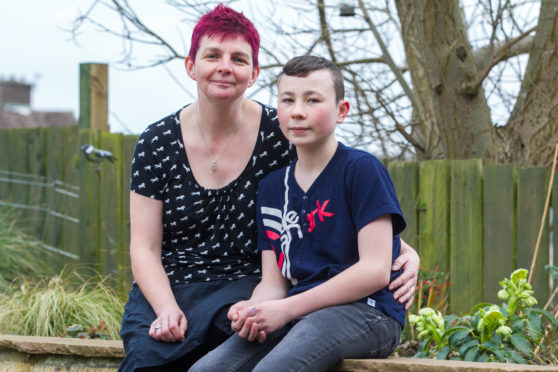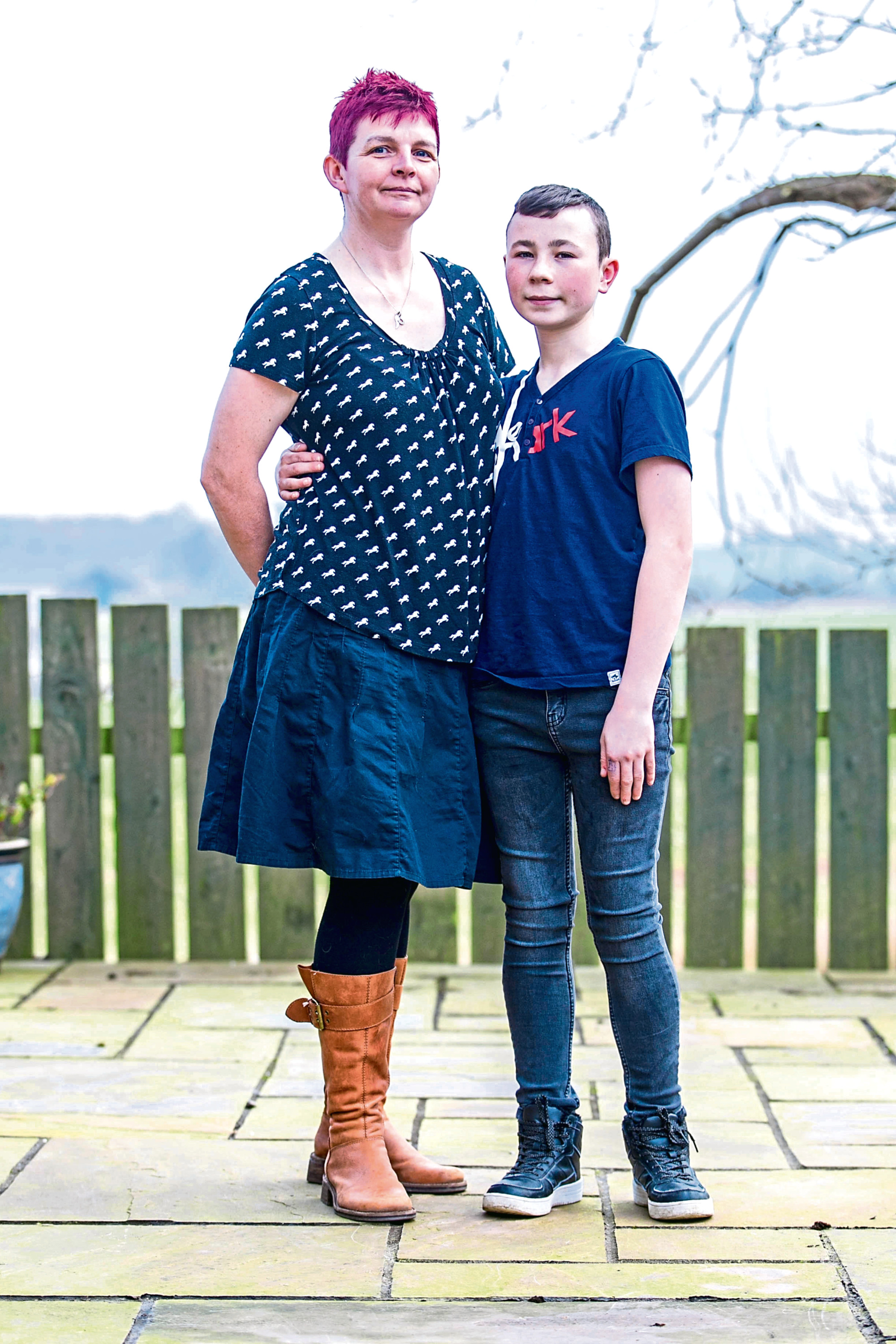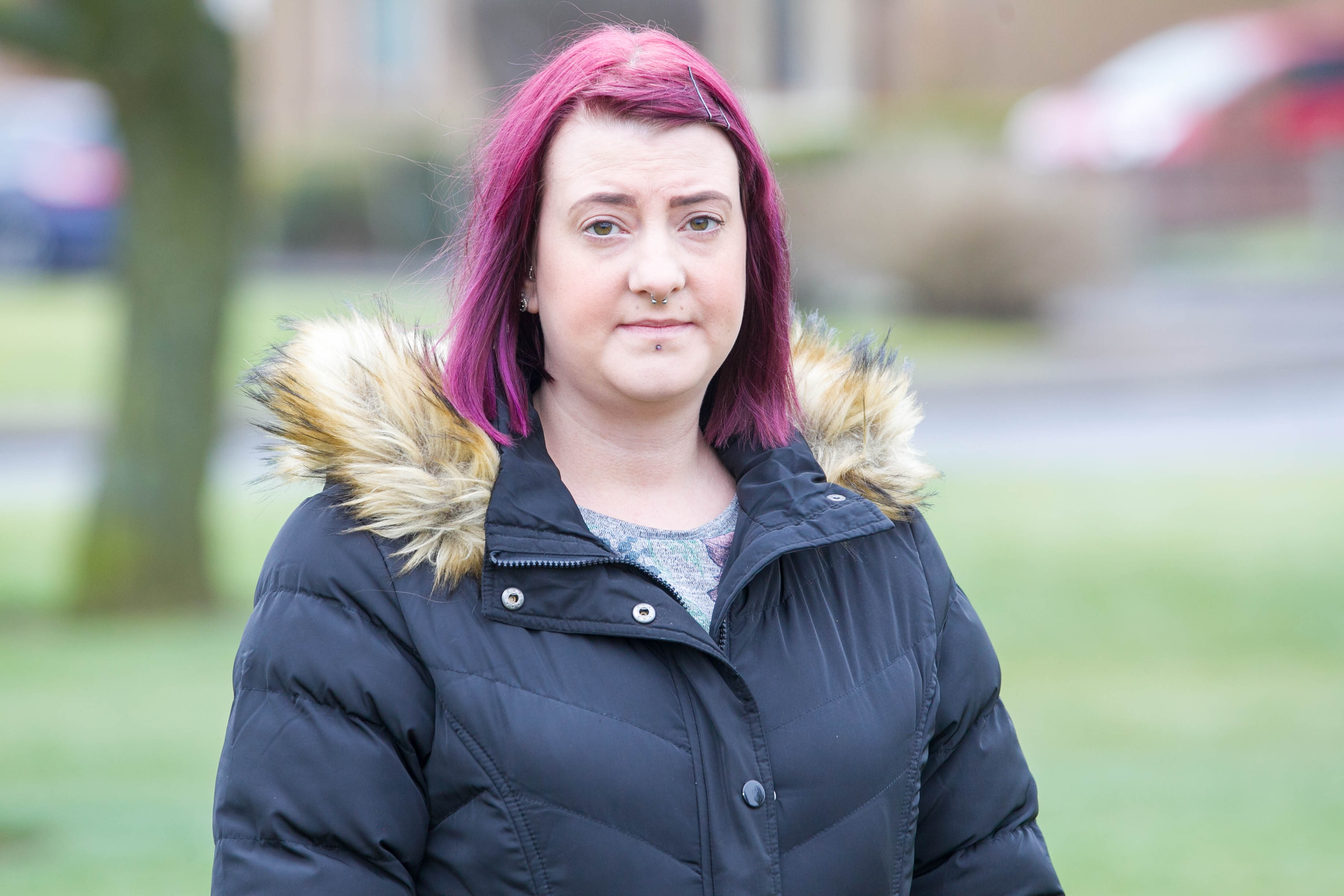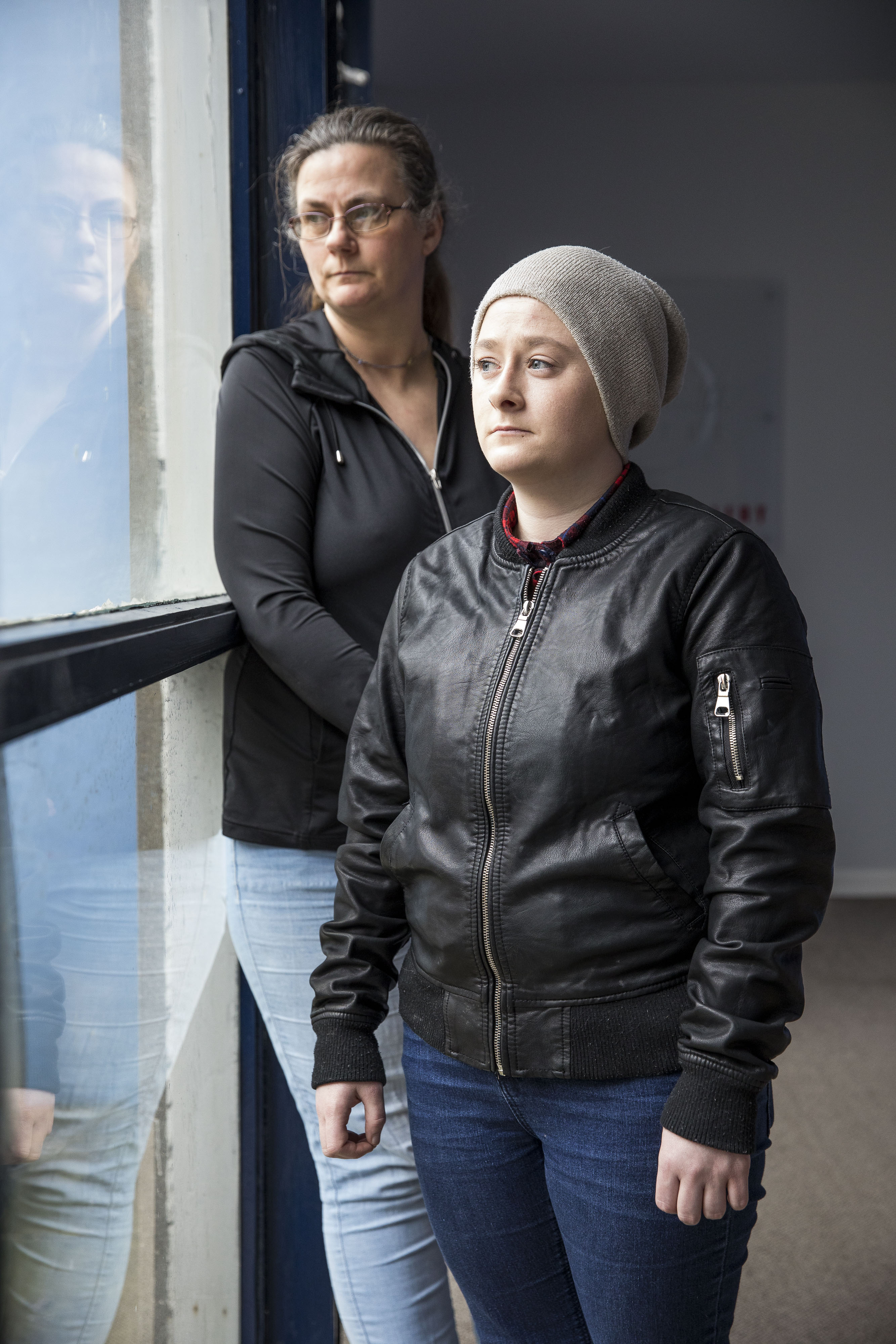
The 172,000 Scots born damaged by their mothers’ drinking can be revealed today as a nationwide drive is launched to help the innocent victims of Scotland’s alcohol problem.
The number of those affected by foetal alcohol spectrum disorder (FASD), caused by maternal drinking during pregnancy, has escalated calls for earlier diagnosis and better support for victims.
The disorder is now four times more common than autism but, experts fear, awareness of the condition among the public and health professionals remains far too low.
A specialist team of doctors is planning to train hundreds of health staff across the country as part of a nationwide blueprint for change.
A taskforce set up by the Scottish Government to examine how to improve child mental health will also include issues around FASD.
What is FASD?
Foetal alcohol spectrum disorder (FASD) covers a range of physical, emotional and development delays in people exposed to alcohol during pregnancy.
Around 10% of cases are a type known as foetal alcohol syndrome, which also have distinctive facial features – such as a small head, small eyes, thin upper lip and smooth area between the nose and mouth, known as the philtrum.
But in the majority of cases these facial features are not present, meaning it is often referred to as a “hidden” disability.
There are nine brain functions that can be potentially affected by FASD – such as social skills, academic skills, focus and attention, communication and memory.
It can lead to a wide range of issues for
sufferers such as being impulsive, difficulty controlling emotions, problems in school particularly with maths, reading, time and money, struggling to follow instructions and memory problems.
Consultant paediatrician Dr Sarah Brown, of NHS Ayrshire and Arran’s foetal alcohol advisory and support team, said there had to be recognition of the “unaddressed problem” in society which was affecting the lives and life chances of many.
She said: “The message we would like is – if you are drinking, don’t get pregnant. It is a bit like if you are drinking, don’t drive. It is as simple as that.
“However, it is alarmist to say if you have been drinking during pregnancy you will have a child with additional needs. Not all alcohol-exposed pregnancies will result in FASD.”
She said there had been a change in culture in women drinking over the past 30 years and mothers-to-be should not be blamed for the issue.
Dr Brown said: “Because so many of us drink and it is something that could happen to any of us – there is a real reluctance to own it as a society.
“There is still a stigma around the diagnosis, and it is likely to take many years to overcome this but we are starting to make progress and the first step is recognising that, as a society, we have an unaddressed problem which is affecting the lives and life chances of many.”
The NHS Ayrshire and Arran team set up a clinic to assess and support children with suspected FASD in 2015 – the first of its kind in Scotland. Initially 36 children up to the age of 12 were assessed, with all the available places taken up within six months.
To help meet further demand experts from other services, such as child and adolescent mental health, were trained to take on other cases – resulting in more than 200 children undergoing assessments. But that is a fraction of those thought to be affected.
Figures compiled by the NHS body Healthcare Improvement Scotland state that “as many as 172,000 people could be affected by the disorder in Scotland”.
After the three-year pilot of the NHS Ayrshire and Arran clinic, which was backed by Scottish Government funding, the expertise in helping FASD children is now being rolled out across Scotland.
It is planned that assessments for FASD will become part of mainstream services, which already treat children with autism and ADHD.
Dr Brown said: “With Scottish Government support we are able to provide training sessions over the summer where we will support health boards to have a trained team to help meet the needs of these children.
“We have a huge opportunity in Scotland to be leaders in prevention, identification and support and change the trajectories of affected individuals and their families.”
Once FASD is identified, parents and schools can then be given advice about how the child can be supported.
Those affected by FASD are more likely to have mental health difficulties, be excluded from school, have addiction issues and have contact with the criminal justice system by the age of 12.
Dr Jennifer Shields, principal clinical psychologist at NHS Ayrshire and Arran’s foetal alcohol advisory and support team, said the condition was often being missed.
She said: “The children may struggle socially, they may struggle with their attention and concentration – that might look like autism and ADHD when, in actual fact, there has been an alcohol history in the pregnancy that no one has fully enquired about.”
She said many undiagnosed adults in Scotland were living with the impact of FASD on their lives.
DEBBIE’S STORY: “He still gets frustrated because he can’t do things that other kids can”
Debbie Jury, 48, from Kelty, Fife, has a 16-year-old adopted son Lewis who has been diagnosed with foetal alcohol syndrome (FAS). His birth mother was addicted to alcohol.
She said: “He shows some of the physical characteristics – he is just under five foot and he is now 16.
“He also has lots of developmental delay – socially he finds things very difficult and he is very immature for his age.
“He doesn’t understand conceptual things like money or time. He has been diagnosed with dyslexia, dyspraxia and sensory function disorder which means he falls over things a lot. He is not able to judge distance so he bumps into things a lot.
“He has had lots of behavioural issues – most of them due to frustration. He used to come home and bang his head and say ‘brain is stupid’.
“Eventually we had to sit down and explain to him, in terms he could understand, a wee bit about why he was having problems.
“That made it easier for him to accept and comprehend – but he still gets frustrated as he can’t do the things that other kids can do.
“The statistics on FAS are quite frightening – I would have said it was probably on a par with autism, so it was quite shocking to see it is three or four times more prevalent – yet nobody speaks about it.
“It is not acceptable to blame people for it. Some people don’t know they are pregnant until later, some people are unaware of the risks and some people have an issue they cannot control and deal with. That doesn’t make you a monster.
“When we applied to adopt we were told there was an individual who was pregnant who would not be keeping her baby because she had two previous pregnancies – both children had been diagnosed with developmental and learning difficulties because of her addiction to alcohol. We met him when he was three months old and officially adopted him at six months.
“We were told because of the circumstances of the pregnancy there was a likelihood he would have FAS.
“He is going through his prelims just now and managing to sit a National 5 (exam).”
LEANNE’S STORY: “At school, I thought I was thick but my condition meant I needed extra help”
Leanne Caird, 28, from Kirriemuir, Angus, was diagnosed with foetal alcohol syndrome (FAS) when she was a baby.
She said: “I have always known I had it and for me the main issues are memory problems and I also find problem-solving difficult.
“Going through school I didn’t realise that was what the problem was – I just thought I was thick.
“It wasn’t until I left school and was working and had to do a qualification working in care, that is when I clicked it was because of the FAS that I needed extra help. I finally passed something, so I was chuffed with that.
“My mum was an alcoholic and I grew up with my grandparents. I was diagnosed in England and then moved up to Scotland. It was on my medical records and but there wasn’t much information about it.
“I went through a period two years ago when it hit me like a ton of bricks, and I got over that. Now I am aware that is why I am like that, it doesn’t affect me much. It is more anxiety and stuff.
“I have a lot of support from my friends – they help me out with money as I am rubbish at maths. I need that kind of support.”
Leanne, who has a five-year-old son, called for more awareness of the guidelines on drinking during pregnancy.
She added: “When I was pregnant, for example, I was told by someone I knew it was fine to drink up until six weeks – the information can be so conflicting.”
KAYA’S STORY: “I look normal so no one would think there is anything wrong”
Kaya Hope, 22, from Ayr, was diagnosed with FASD when she was 17, but said it was a struggle to get a diagnosis and support, particularly when she moved from Worcester to Scotland at the age of seven.
She said: “It caused me a lot of problems at school, my concentration was really bad and I used to get bullied a lot so I used to run away.
“FASD causes addiction problems as well. I was a really bad drinker – but I am now proud to say I have been one year and one month sober.
“I look normal so no one would think there is anything wrong. But my concentration is really bad and my memory is really bad. I have been supporting a woman who is the middle of adopting a two-year-old boy with FASD. He is adorable and I am helping give her support.
“My birth mother was a heavy drinker and drug taker. She had a really bad start to her life. We do need to raise awareness of FASD. We have a drinking culture and I would rather awareness was raised to prevent others getting it like me and suffering all your life.
“It is hard on a day-to-day basis.”
Her mum Donna Hope, 51, said: “Kaya came to me as a baby and we adopted her when she was two years old.
“I knew her mum had been drinking through pregnancy, but there was no mention of FASD. When she came to me she was still weaning off drink and drugs – that was at nine weeks and two days old.
“There was endless screaming and seizures, violent shaking. It was horrible. She still has sleeping issues now.”
Action in Scotland lags other countries
Foetal alcohol spectrum disorder (FASD) covers a range of physical, emotional and development delays in people exposed to alcohol during pregnancy.
Around 10% of cases are a type known as foetal alcohol syndrome, which also have distinctive facial features – such as a small head, small eyes, thin upper lip and smooth area between the nose and mouth, known as the philtrum.
But in the majority of cases these facial features are not present, meaning it is often referred to as a “hidden” disability.
There are nine brain functions that can be potentially affected by FASD – such as social skills, academic skills, focus and attention, communication and memory.
It can lead to a wide range of issues for sufferers such as being impulsive, difficulty controlling emotions, problems in school particularly with maths, reading, time and money, struggling to follow instructions and memory problems.

Enjoy the convenience of having The Sunday Post delivered as a digital ePaper straight to your smartphone, tablet or computer.
Subscribe for only £5.49 a month and enjoy all the benefits of the printed paper as a digital replica.
Subscribe © Chris Austin / DCT Media
© Chris Austin / DCT Media © Chris Austin / DCT Media
© Chris Austin / DCT Media © Jamie Williamson
© Jamie Williamson